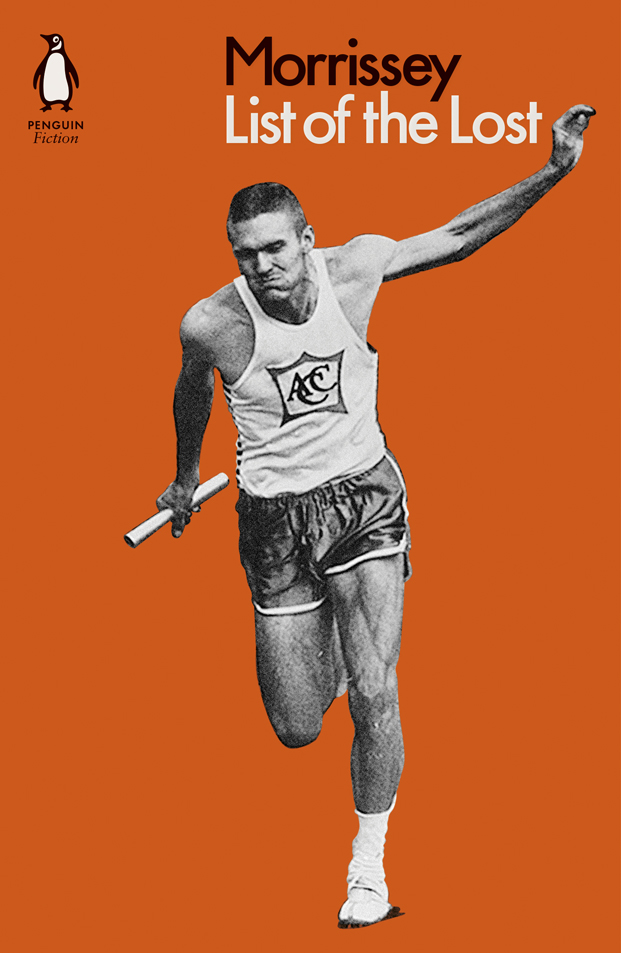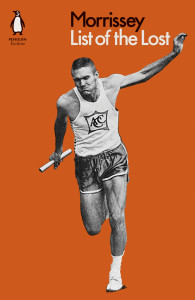When it was first announced a few months back that Penguin would be publishing Morrissey‘s debut novel, my initial reaction, like that of probably most hardened Moz fans, was one of delighted excitement. This most poetic of lyricists, a man immersed for decades in the words of Wilde and Housman, this unique man (uniquely irritating to many, of course) with such deep insight into the human condition. How could he not eventually turn to the novel? And how could it not be at least fascinating, and probably brilliant?
My initial excitement turned quickly to more cautious optimism. Yes, Morrissey’s autobiography, published last year, also by Penguin, was great. Allowing for the inevitable moments of self-indulgence and score settling that come with most musician’s autobiographies, it was incisive, funny, self-deprecating and touching. But, writing a novel is a very different thing. My next thought was to wonder what it would be about. My money was on either a Manchester-set romance or a tale of Victorian persecution. When I found out it was to be about a relay team in 1975 Boston, I was gladly surprised. As publication date approached, my caution began to outweigh my optimism, which was only exacerbated by the scathing early whispers I read online. However, I’m well aware that many people have the knives out for Morrissey, and will slate anything he does. So, it was with a completely open mind that I began to read ‘List Of The Lost’.
Sad to say, the early whispers were right. Actually, that’s not entirely true; they were too generous. From the very first page, it reads like the incoherent ramblings of a sixteen-year-old Byron obsessive’s first attempt at writing. If most people had produced this as a piece of A Level English Literature coursework, they would have failed. Any teacher would have put a thick red line through the whole text, and peppered the paper with terms like ‘DERIVATIVE’, ‘UNFOCUSSED’, ‘RAMBLING’, and ‘WHAT?!?!?!?’.
The plot, such as it is, revolves around four teenage athletes; Ezra, Nails, Justy and Harri (‘You’d dig hard and deep to excavate four names quite so unusual’ we are helpfully informed, just in case we’d missed it). Together they make up the relay team of a renowned boy’s school in a well-to-do district of Boston. Putting them through their gruelling training routine is Mr Rims, their disillusioned coach who, in any other story may have provided the comic relief. When they are confronted by a ‘wretch’, Ezra kills it in self-defense, and collectively they dispose of the body. From here things only get worse for the boys, but by the time this supposedly pivotal event occurs, I had already long since lost interest. The prose is so verbose it is almost impenetrable, not due to complexity or ambition, but because it is so dull. ‘You would be offered a hearty shake of the javelin hand as expressions of possession of command from the four boys, each one fully developed into the blissful torment of their turnabout twentieth year – a pleasantly resolved marital union almost closed off in its camaraderie to the onlookers of the mookish greater world.’ Is the perfect example, and this is in the first paragraph (although paragraphs are a rarity, the reader being confronted by off-putting dense blocks of prose), and before you even get to the clumsy changes of tense.
This review will be one of the shortest I’ll do because there is just about nothing good to say about it. At only 117 pages, it is more novella than novel yet still it took me over a week to plough through it. Had this been written anybody else, I would almost certainly have put it down before the end of the first page, but on I ploughed, determined to find some redeeming qualities, to find some positives. Alas, there were none to be found.
Whoever it was at Penguin that sat and read this manuscript and decided it was worth publishing, should not be allowed to make such decisions for some time. This is honestly the worst novel I have read for a very long time. It’s bad and I urge you not to waste any of your time reading it. If you need a Moz fix, listen to ‘Viva Hate’ and ‘The Queen Is Dead’; read ‘Autobiography’, and steer well clear of this.
Morrissey; genius lyricist, good memoirist, atrocious novelist. He may have a decent novel in him, but this most definitely is not it.





